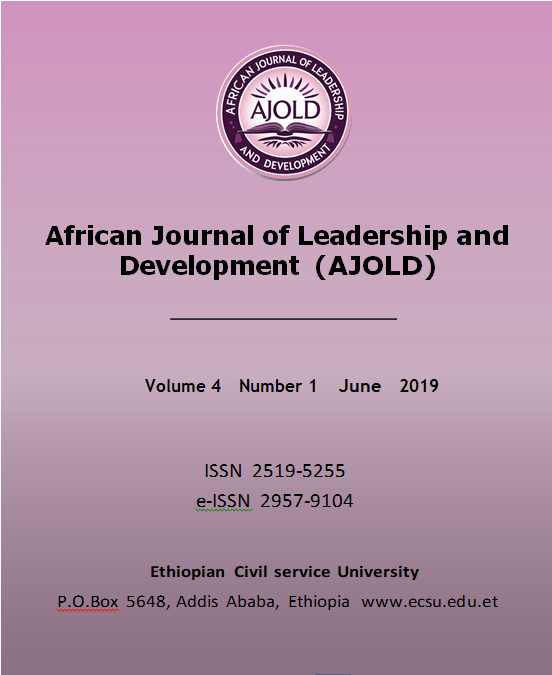Challenges of Ethiopian Working Mothers towards Childcare and Its Implications on Workplace Performance: The Case of Selected Higher Education Institutions
DOI:
https://doi.org/10.63990/2019ajoldvol4iss1pp16-31Keywords:
Working Mothers, Childcare, Maternity Leave, Higher Education Institutions, Workplace IncentiveAbstract
In most developing countries, childcare falls on women’s shoulders due to their gender role assigned by society. This study investigated the challenges of Ethiopian working mothers towards childcare and its implications on workplace performance in selected higher education institutions (HEIs). To achieve this objective, 343 working mothers from 9 universities, 3 focus group discussions and key informant interviews were included in the study. Mixed method design that combines both quantitative and qualitative data analysis were employed. The findings of the study indicated that working mothers do not have access to childcare facilities both within and outside their university. It was found that childcare incentives were inadequate but informal extended maternity leaves were common. Working mothers at higher learning institutions perceive various challenges related to childcare, and affects their work performance negatively. Daycare facilities and other incentives are recommended for working mothers to create a better working environment and thereby enhance the performance of working mothers, while supporting the development of healthy children.
Downloads
Published
How to Cite
Issue
Section
License
This work is licensed under a Creative Commons Attribution-NonCommercial 4.0 International License






